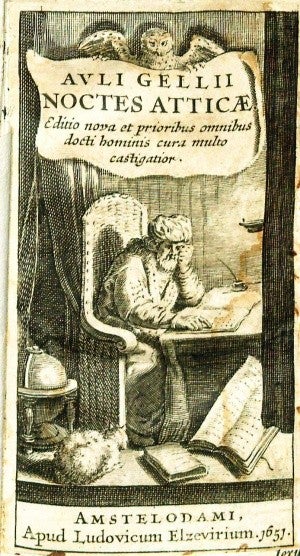
“The Affective Power of the Original: Authenticity as Fides” by Irene Peirano Garrison
Monday, November 6, 2017
On the basis of ancient testimonia from Gellius, Galen, and others, scholars of the ancient Roman book have long insisted on the existence of an extensive market for forged manuscripts. This paper revaluates the testimonia with a focus not on the provenance of the books but instead on the language of authenticity in these sources. For example, the manuscript of Cicero corrected by Tiro is described in Gellius as “a book of proven trustworthiness made with Tiro’s diligence and learning” (NA 1.7.1-2 in libro spectatae fidei Tironiana cura atque disciplina facto). Fides, which most closely translates authenticity in this and other passages, collapses two related conceptual fields: the authenticity of the transmitted text and the authenticity of the book as an object. Through the vocabulary of fides, authenticity is construed as an “affective” mode in which the focus falls not on the supposed relationship to an original but on the power of the object to command the trust of the reading subject. Similarly to written records, which can be constructed in humanizing form as a “loyal guard” (Livy 6.1 custodia fidelis) protecting the past, authentic manuscripts are “affective objects” that allow one to access the author’s writing.
Bio: Irene Peirano Garrison studied at Oriel College, Oxford (B.A. Hons. Literae Humaniores 2002) and Harvard University (Ph.D. Classical Philology 2007). Her main research interests are Latin poetry, Literary Criticism and Rhetorical Theory in Antiquity, Reception Theory and Gender. Speaker URL: http://classics.yale.edu/people/irene-peirano-garrison
